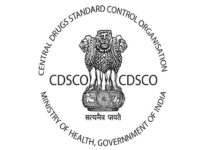In the senior stages of life, the human body will have undergone significant changes. Many of these will have a cumulative effect on general health levels in the elderly and may result in the person being at a higher risk of suffering from chronic illnesses. Growing old is an accepted part of life. Many people may not look forward to old age with positivity or enthusiasm, but it is important to realize that many health conditions that occur in senior citizens can be effectively managed. Some conditions require simple lifestyle changes, such as improving a person’s diet or taking regular forms of exercise. In other circumstances,it may be beneficial for medical professionals to prescribe specific drug treatments to allow a high standard of living to be maintained. In this article, two common changes to the body in the later stages of life will be discussed, with information on how these changes can be effectively managed.
A Decline in Bone Density
One of the most common physiological changes in the senior stages of life is for reductions in bone density to occur. It is important to recognize that after 35 years of age, bones begin to structurally break down faster than they are built up. It is estimated that most people will lose less than 1% of their bone density per year after reaching 35 years. Once the final stage of senior living has been reached it is common for some elderly people to have extremely low levels of bone density. In serious cases, this can lead to osteoporosis and common slips or falls can result in bone fractures. Thankfully, there is a range of treatment options that can assist in managing low levels of bone density and any loss of mobility that occurs because of this. Taking calcium tablets is an easy way to help safeguard bone density, as is taking vitamin D tablets and enjoying a diet that is rich in protein. However, when serious mobility issues result from low bone density and there is a risk of sustaining injuries from falls, other care options should be considered. For senior citizens with significant mobility problems who live in north-western Georgia, it may be wise to consider facilities for senior living in Atlanta. At such establishments there are trained care staff on-site who can help with mobility issues arising from low bone density and care plans can be created to minimize the impact of this condition on daily life.
Cardiovascular System
As people age, their cardiovascular systems also undergo significant changes. The heart and blood vessels become stiffer with age and the heart will fill with blood less quickly than in the early years of adulthood. These changes to the cardiovascular system can lead to increased blood pressure in later life. This condition needs to be managed effectively, as extended periods of high blood pressure can lead to an increased risk of stroke and a range of cardiovascular problems. Managing high blood pressure can be as simple as taking regular gentle exercise in later life and eating a balanced diet. However, in some circumstances, it is beneficial to take certain medications to lower the blood pressure. Taking angiotensin-converting enzyme (ACE) inhibitors have been demonstrated to be effective, as they relax the blood vessels. Angiotensin II receptor blockers (ARBs) and calcium channel blockers can also have the same effect.


















